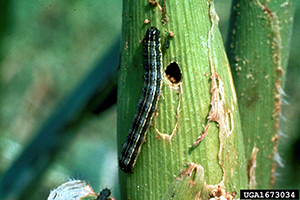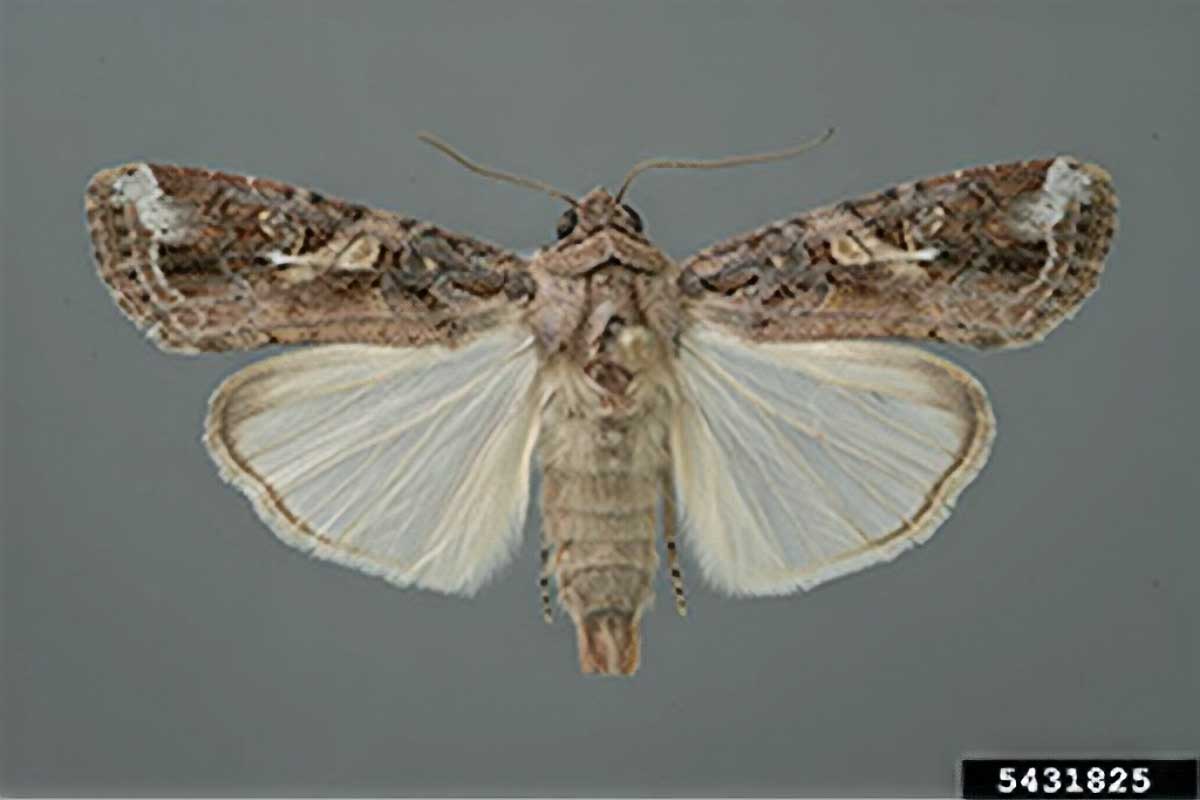Fall armyworm podcasts launched to help growers
The Plant Biosecurity Research Initiative (PBRI) recently launched three podcasts on the impact and management of fall armyworm as an important resource for growers across Australia.
The podcasts feature interviews with:
- growers and agronomists on their first-hand experience in managing new and emerging pests
- leading Australian researchers on their latest findings and observations
- international experts who share their experiences and learnings.
National Manager for Preparedness and RD&E at Plant Health Australia Stuart Kearns said: “The podcasts have been developed to support grower awareness and management options following the recent arrival of fall armyworm in the northern regions of Australia.”

Fall armyworm larvae. Image: University of Georgia, Bugwood.org
“Funded by PBRI members, the podcasts are available on the PBRI website and are available through Spotify, Apple Podcasts, Google Podcasts and Fireside for growers to listen to while on the tractor or when working on the farm.
“Each podcast delivers an understanding of the biology and behaviour of fall armyworm and explores how we can best prepare ourselves to minimise the impact.”
The fall armyworm was first found in January 2020 in northern Queensland and has since been reported in far north Western Australia and the Northern Territory.
The larvae can feed on many crop species, including maize, sorghum, sweet corn, vegetables, pulses, winter cereals, sugar cane, rice and cotton. It can be highly destructive when not controlled and has become resistant to many chemical treatments.
PBRI Director Jo Luck said: “The pest isn’t able to be eradicated due to its ability to fly long distances, high reproductive rate, and its ability to infest over 350 plant host species. It is a migratory species that uses prevailing winds and can also be spread by humans on infested plant materials.”
“These podcasts are an excellent resource for our northern Australian growers to help them manage the pest.”

Adult moth. Image: Lyle Buss, University of Florida, Bugwood.org
This PBRI project is led by the Cotton Research and Development Corporation with co-funding from Hort Innovation, AgriFutures Australia, the Grains Research and Development Corporation, and Sugar Research Australia.
The coordination of high priority biosecurity research, development and extension across Australian plant industries is a primary aim of the PBRI.

